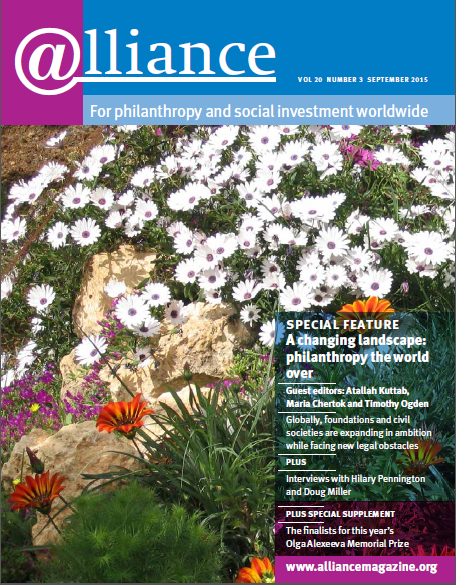Although Latin America’s wealthy citizens have long practised charity and philanthropy to help others, recent years have witnessed a marked change in their charitable giving, according to a new report, From Prosperity to Purpose, based on in-depth interviews and an online survey of over 150 philanthropists and experts across Argentina, Brazil, Chile, Colombia, Mexico and Peru.
In recent decades, economic growth and increasing political stability across Latin America have led to a significant accumulation of private wealth, with the regional ultra high net worth population increasing over 2.5 times faster than the global average. However, Latin America is still home to some of the highest levels of income inequality in the world, including 10 of the 15 most unequal countries.
This is the context in which researchers at the Hauser Institute for Civil Society at Harvard University conducted a new study, with support from UBS, to better understand the motivations for and practices of philanthropy in the region today.
Some of the key findings are:
There is a perception of increased giving, despite a paucity of data. The scale of philanthropy and social investment in Latin America is largely unknown and cannot be reasonably estimated; however, giving is assumed to be on the rise. Individuals in Brazil, Colombia and Mexico were particularly optimistic about the trajectory of philanthropic growth.
Current areas being funded are different from perceived future priorities. The study found notable differences between the issues philanthropists in the region support today and what they perceive as priorities for the future. Study participants indicated that currently education is their key focus area, followed by cultural and artistic heritage, health and community development. However, social entrepreneurship and globally related issues, not a current focus for many, are seen as high priorities for the future.
Corporations are perceived as leaders in social investment. In some countries there is a long history of corporate community investment and across the region there is a growing commitment to (and expectation of) corporate social responsibility. There seems to be greater public acceptance of corporate, rather than individual, social investment. Yet in family-owned companies, philanthropic programmes are often directed by the owners and may reflect both personal and corporate values and priorities.
Institutional platforms for social investment are increasing. It is generally assumed that individuals, not institutions, provide most philanthropy in Latin America and that giving often takes place in an anonymous or low-profile manner. At the same time, the number of philanthropic institutions is clearly increasing, with individuals, families and corporations seeking a more strategic approach, higher visibility and greater collaboration.
Philanthropy is moving from ‘charity to change’ and taking an outcomes-focused approach. There is an evolving view that philanthropic giving and social investment can and must play an increasing role in effecting sustainable social change. Some philanthropists in the region are also utilizing an outcomes-focused or problem-centred approach, which has a greater emphasis on achieving tangible, measured outcomes and employing various social investment strategies (foundation-operated programmes, grantmaking to third-party organizations, scholarships, and – more rarely – equity investments and loans) to reach the desired social impact.
Impact investing is growing across the region. Impact investing is increasingly attractive to philanthropists and social investors in Latin America. A decade ago, there were just two or three international players investing in the region; now there are more than 50 organizations with hubs of activity in Bogotá, Mexico City and São Paulo, with committed capital of US$2 billion in 2013.
There is optimism about the future. Notwithstanding the challenges, there seems to be cautious optimism about the future of social investment and philanthropy in the region. It is thought by many that increased political stability, economic prosperity and personal wealth will be accompanied by the growth of social cohesion, collective responsibility and institutional trust. With time and encouragement, many anticipate that philanthropy and social investment will flourish.
For more information
From Prosperity to Purpose: Perspectives on philanthropy and social investment among wealthy individuals in Latin America is available in English, Spanish and Portuguese at http://www.ubs.com/philanthropy and http://www.cpl.hks.harvard.edu
Silvia Bastante de Unverhau is head of philanthropy advisory at UBS. Email silvia.bastante@ubs.com
Paula Doherty Johnson is a senior research fellow at the Hauser Institute for Civil Society at Harvard University. Email paula_johnson@hks.havard.edu








Comments (0)